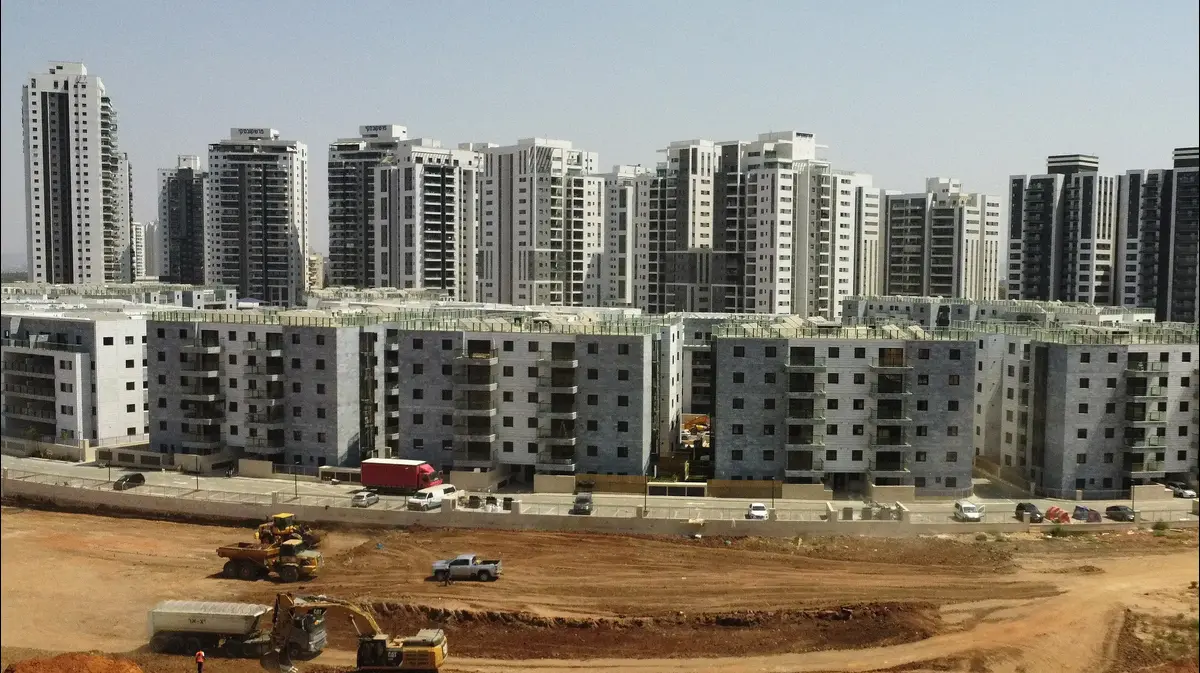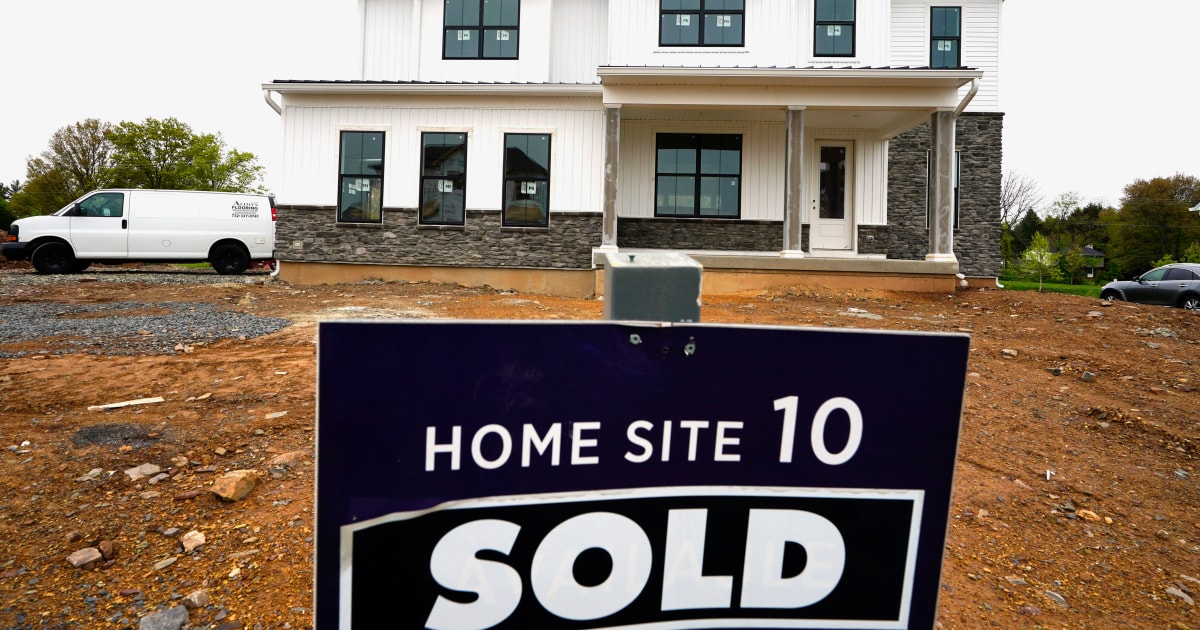Growing purchase and rental prices, scarcity of land to build on, taxes that make it difficult to buy, governments that cut costs, low labor mobility, energy poverty ... These are the faces of the multifaceted puzzle that, according to the OECD, involves access to housing . The body that brings together the richest economies in the world also warns that rental regulations "have an impact on the efficient functioning of real estate markets, as they can discourage investment in construction and maintenance." The Spanish government has been debating for months about the possibility of imposing limits on rents, an issue that has divided the two coalition partners,the Socialists (who defend fiscal aid to encourage the rental offer) and United We Can (in favor of establishing rent caps).
A "growing challenge in many countries", warns the Organization for Economic Cooperation and Development, which groups 38 of the most advanced economies on the planet, in a report published this Monday, with data for reflection: between 2005 and 2015 , the expenses caused by housing in families grew by an average of five points, "reaching 31% of the budget in middle-income households."
In the same period, the portion of their income that families had to dedicate to health or transportation grew by less than one point, and in other basic expenses such as education, clothing or food it fell.
In other words, housing takes an ever greater bite out of the resources available to families.
More information
IMF calls on European countries to increase spending on social rent
With the aim of diagnosing the origin of the damage and promoting policies aimed at remedying it, the OECD has prepared this week several conferences focused on housing. And to open fire, the study
Brick by brick
publishes this Monday
. Building better housing policies
. The report recalls that housing is "a basic human need" and that it is a crucial issue for human well-being. And he cites some processes that are putting it into question, such as "the failure of the housing sector to provide enough homes where demand is strong, such as urban areas rich in employment."
The OECD does not forget to mention the environmental challenge posed by residential buildings, globally responsible for 17% of global greenhouse gas emissions and 37% of fine particle emissions (pollutants and harmful to human health) .
These are "interconnected challenges" for the club of rich countries and therefore require "political action in a wide range of domains." To begin with, in the budgets. "Public investment in housing development has fallen from 0.17% of GDP in 2001 to 0.06% of GDP in 2018, on average for OECD countries," reads the agency's report on a slap on the wrist. for your partners. As a result, the authors —a broad cast of specialists from the OECD's economic department, coordinated by economists Boris Cournède and Volker Ziemann— ask countries for “greater investment in social and affordable housing”, a solution to which they only find virtues. . Making this economic effort, they argue, “would have the dual benefit of protecting vulnerable or low-income households while the housing supply expands and,as a result, increasing price pressure is relieved ”. In addition, it can be used to make new buildings more environmentally sustainable and "avoiding social and economic segregation."
The ravages of the pandemic
Starting by recommending that increased spending is no accident.
To the aforementioned cut in spending that OECD countries have devoted to housing in recent years, is added the challenge of the coronavirus crisis.
This has aggravated the situation especially for those who had it more difficult before the arrival of the virus.
The pandemic "has caused severe job and income losses that have been concentrated in the most vulnerable groups", such as young or low-income households (with more precarious jobs and less susceptible to teleworking, in general).
And that "exacerbates the difficulties in ensuring access to quality affordable housing."
But not everything is increased spending. The Paris-based club also suggests two other changes states can undertake to facilitate access to housing. Thus, the report points out that "land policy reforms can raise obstacles to the expansion of supply." In other words, speed up the construction of new homes so that the supply increases. Appointment, for example, change the number of heights that can be built. In this regard, it also warns about the lack of coordination between different levels of the administration, which can cause inefficiencies. The other change the OECD proposes is to shift housing tax from transactions (i.e.the taxes that are paid when buying a house and that according to the agency put a barrier to access to the purchase for many households) to own tenure, in the form of annual levies that depend more on land prices than on the current value of the real estate.
In addition, three other gradual solutions are recommended. These are convenient, say the authors of the report, but they must be adopted with compensatory measures because in the short term they can cause imbalances. The first is the removal of tax incentives for homeowners, which would initially make it difficult for younger families to buy, but would eventually help lower prices. The second is to make the rental market more flexible, which according to OECD experts helps to increase the supply. On this point, he warns that in the short term the measure can be very harmful for the most vulnerable tenants and that is why they ask that it be accompanied by other solutions "including, for example, an increase in the provision of social housing."The third intermediate proposal is to adopt stricter environmental regulations to achieve more sustainable buildings, which puts upward pressure on the prices of construction and maintenance of houses, for which subsidies and compensatory aid are requested.
Spain, at the bottom of the expenditure table
The report published this Monday gives generic solutions for all OECD member countries and does not carry specific recommendations for each of its partners.
But it does include some country-by-country sheets that clearly show the weaknesses of each one.
In the case of Spain, the scarce spending devoted to housing policies as a whole stands out precisely, 0.1% of GDP, when the average of the club's countries is 0.32% and the most advanced in this regard, the United Kingdom, dedicates 1.53% of GDP.
It must be taken into account that the year taken as a reference in the study is 2018, which together with 2017 marked the ground in terms of spending on housing budgeted by the Government.
In the last approved Budgets, for example, the items have been multiplied by more than four.
Spain also stands out negatively in the overload of housing costs for low-income tenants: 46% of these types of households allocate more than 40% of their budget to the house. The OECD average is 11 points lower (35%) and the country with the worst prognosis is Colombia (73%). In the average with other countries of the club it is in terms of price volatility, which suggests a relatively stable growth, although it is warned that “after the global financial crisis [of 2008], purchase and rental prices have diverged enormously between regions, with upward pressure in some cities, such as Madrid and Barcelona). Directly related to prices, the capital requirements to obtain a mortgage are also in the average for the club of rich countries.
And on the positive side, Spain stands out for the low time it takes for citizens to go from home to work - which in general shows the ability to find a home close to where they work and efficient transport networks, although it can also be related to a low labor mobility—, in the low rate of overcrowding or overcrowding of homes and also scores well in environmental standards (which the climate helps, the report points out, by not requiring much heating in winter). Spain also appears in the report among the countries that score the highest in the control of rental income. Apart from the political debate on price control, the study measures all the regulations that in one way or another impede the free growth of income (for example,the fact that in the years of the contract the increases are limited to GDP growth or other indicators) and gives Spain a score of 0.57 on a scale between zero and one. The OECD average is 0.41 points and the country that scores the most is Sweden (0.94).




/cloudfront-eu-central-1.images.arcpublishing.com/prisa/GSAG3AFDE5GZ7CR5RU42LT63UM.jpg)










